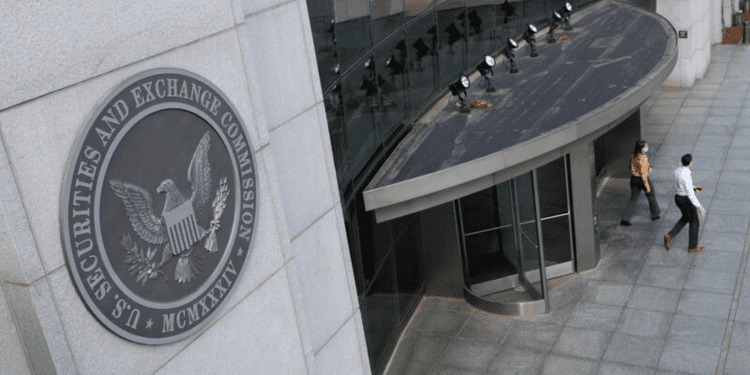- The U.S. Securities and Exchange Commission (SEC) has declared that Filecoin’s FIL token, the key asset of Grayscale’s Filecoin Trust, qualifies as a security, urging Grayscale to withdraw its application.
- Grayscale, disagreeing with the SEC’s classification, has expressed its intent to provide a legal basis arguing that FIL is not a security.
- The SEC’s recent focus on digital assets, including targeting American crypto exchanges for allegedly selling unregistered securities, reflects a stricter regulatory stance.
In a surprising move, the U.S. Securities and Exchange Commission (SEC) issued a directive to Grayscale Investments, the foremost cryptocurrency investment firm, concerning the status of Filecoin (FIL). The regulatory body asserts that Filecoin’s FIL token, the fundamental asset of Grayscale’s Filecoin Trust, falls under the definition of security according to federal laws.
The Nature of Filecoin and Grayscale’s Stand
Established in 2014 by tech firm Protocol Labs, Filecoin is a decentralized platform for data storage, allowing users to pay in FIL tokens for data storage services. Grayscale, renowned for its digital asset trusts, provided a way for investors to gain exposure to FIL without holding the asset directly through its Filecoin Trust.
In line with the company’s outlined product lifecycle, Grayscale voluntarily submitted a Form 10 to the SEC to obtain reporting status. However, a response from the SEC challenged this move, stating that FIL “meets the definition of a security” and that Grayscale should withdraw its application.
Grayscale Stands Its Ground
Despite the SEC’s assertion, Grayscale still needs to be convinced that FIL is security. The firm promptly responded to the SEC, expressing its intention to explain the legal basis for its stand. Grayscale’s objection to the SEC’s classification further fuels an ongoing debate surrounding the status of various digital assets.
The present scenario recalls a legal dispute from last year when Grayscale lodged a lawsuit against the SEC for the latter’s denial of their application to establish a Bitcoin ETF. While Bitcoin, the largest cryptocurrency by market cap, isn’t classified as a security, the SEC under Chairman Gary Gensler has pursued American crypto exchanges like Kraken, Bittrex, and Coinbase, accusing them of selling unregistered securities.
Market Reaction and Regulatory Uncertainty
News of the SEC’s categorization of FIL as security led to a minor dip in its market value, with the price per token dropping 1.2%. FIL, the 33rd largest digital asset by market cap, quickly rebounded and is currently trading at $4.54.
The SEC’s stance on Filecoin reflects its broader approach toward the digital asset industry. Although the regulatory body has yet to clarify which specific assets qualify as securities, its recent crackdown on U.S. crypto exchanges indicates a more stringent regulatory stance. This has sparked questions about the agency’s process of regulating digital assets, with critics, including Coinbase, requesting more explicit regulations.
As the SEC continues to scrutinize digital assets, the broader business community is feeling the impact. As Grayscale and the SEC engage in their regulatory tug-of-war over Filecoin, market observers and crypto enthusiasts are watching closely, waiting to see how the outcome could influence the digital asset landscape.














